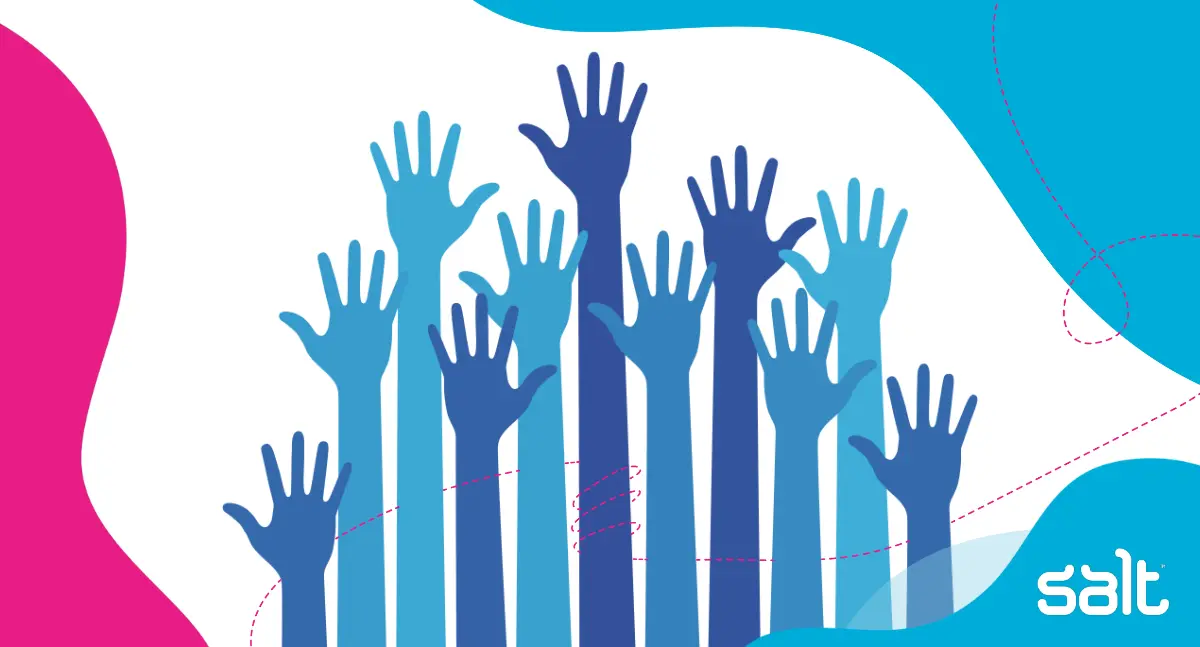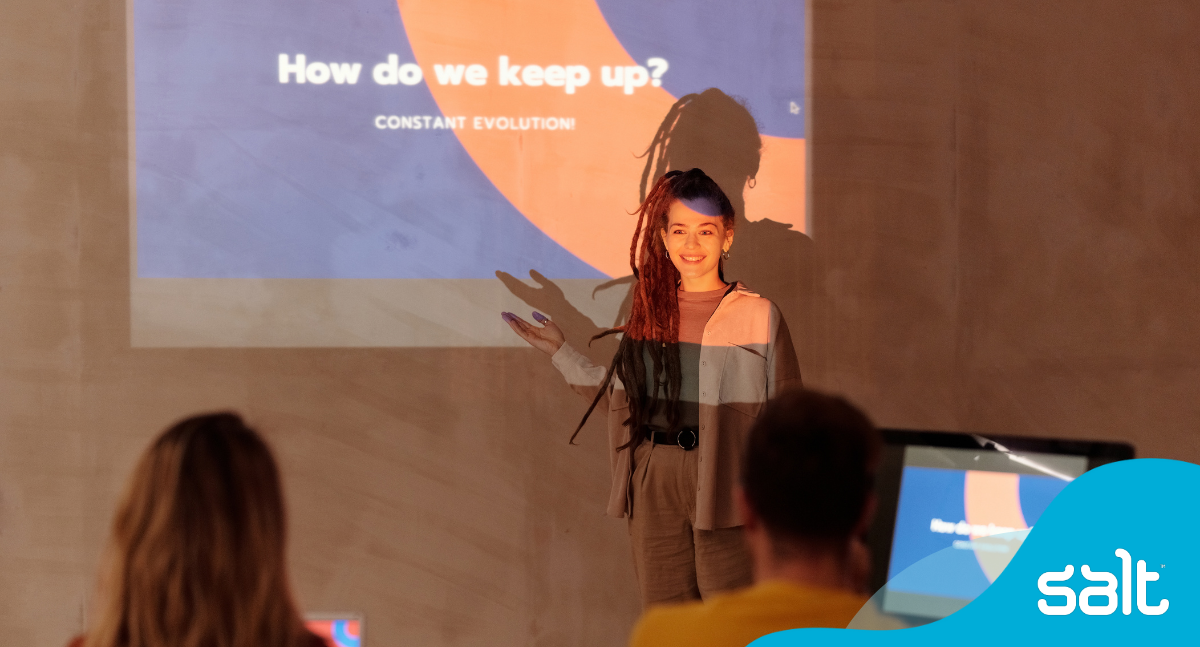
There are lots of ways to be a good ally on social media. We’ve looked at 7 ways to start being a good ally online and off, but there are certain toxic behaviors that are important to address to be respectful and prevent causing harm to minoritized groups online.
Because we can never fully understand another person’s identity and experience – it’s easy to get things wrong, online and off. We’re all born with implicit biases, and we all grow up in a system that continues to reinforce these. What this means is structurally some identities are privileged in ways they need to work to recognize.
Owning your own privilege and your own mistakes goes hand in hand. You learn by listening.
That said, there are certain toxic behaviors that cause harm and hurt and should be avoided at all costs. Here are some tips to keep your posting on the right side of allyship – and help you to be the most helpful social media ally you can be!
Our diversity and inclusion series aims to deliver thought-provoking and informative commentary about issues ranging from the workplace to our daily online and offline lives. Sign up to hear more! Our next article will be on inclusive hiring – and what that looks like practically.
1. Do your own research to challenge your own biases
It’s important to challenge your own implicit biases before weighing in on an issue. Particularly one that doesn’t directly affect you. Do some research – news articles, forums, social media feeds of people you admire – and think about how you’re adding to the conversation before you add to it.
Try to get a full picture but recognise that voices directly impacted by the issues at hand carry more weight. These same voices may not be the ones you see in the media or with the biggest followings. They may be emotional and less formal – as they’re sharing a personal experience or viewpoint.
2. Check with others if you’re unsure about something
You can also ask friends and colleagues before posting if you’re not sure about something. But be conscious and respectful. It’s not their job to check things on your behalf.
If your workplace has a Lived Experience Network, see what support is available there and what materials they’ve shared for staff wanting to talk about a topic. Again, if you ask for their help, do so respectfully.
In the Harvard Business Review article Be a Better Ally, Tsedale M. Melaku, Angie Beeman, David G. Smith, and W. Brad Johnson address how to approach this conversation – by asking for the person’s permission and approaching them with humility and a learning mindset. Their article is directly providing advice for men talking to Women / People of colour but they ‘believe it can be used by members of any privileged group who want to create inclusive organizations’.
They provide some example questions to give you an idea of how to do this successfully. You can edit the identities to suit the conversation or topic you’re having.
- I’m curious about the things women/people of color/women of color in this organization find most challenging day-to-day—things that I might not notice. Would you feel comfortable sharing some of what you encounter?
- If there was one thing you wish your white male colleagues would do more of to improve the experience of women/people of color/women of color, what would it be?
- If there was one thing we could stop doing every day, what would it be?
- If you were giving me advice on how to really show up as a colleague to make the workplace fair and welcoming, what would you say?
3. Think before you post online
Take a moment to consider your post from all angles, especially if it’s about someone else’s experience and not your own:
- Could your opinion, or the way you’re phrasing the issue, be harmful or offensive?
- Is the advice you’re giving accessible to everyone?
- Have you acknowledged your own privilege and how your experiences might differ?
If you’re sharing data, verify the source. If it’s a survey, for example, investigate how many people were asked and how they were selected. It’s important to share accurate information and investigate the methodology behind the takeaway you’re sharing. See step 5 for more!
4. Recognize on-going issues and share how to help
Keep an eye out for actions that you and your network can take – like protests or pledges or petitions. Follow charities and activists to stay in the loop about campaigns and lobbies they’re carrying out.
Lots of not-for-profit organisations run their own lobbying campaigns – or support lobbying action – so look out for their social accounts or newsletters.
You can also find petitions and add your name on sites like Change.org or ActionStorm. They are also places where you can start your own movement.
5. Be conscious the conversation isn’t about you
It’s important not to center the conversation around yourself. Self-love and self-improvement are important but should be kept separate from activism.
Virtue signalling or self-promoting posts will upset your network and make your post look like an attention grab.
These could be:
- Adding your support to an issue you don’t fully understand – which can mean you focus on red herring debates instead of the issues at hand
- Posting about a movement without mentioning what they stand for and what they’re asking for – which can be misleading and misrepresentative
- Posting about yourself and what you’re doing without referencing the context or the cause, or how others can also get involved
- Using less advantaged peoples for likes – make sure your post and your activity warrants sharing and isn’t tokenism
Every post adds more to a social media feed. So be aware that when you post, you could be taking the spotlight from a marginalized voice or activism movement. Be conscientious of which hashtags you’re using so affected people and activists can get the focus they need.
Instead of writing your own post – you could share others’ posts with your own commentary to raise awareness of an issue with your audience. This keeps the focus where it should be and helps that post reach more people.
6. Never use slurs or generalize
It’s never OK to use slurs. Language has power and whatever your intention – it’s traumatizing and upsetting to your audience and normalizes their use. If you upset someone with your language, don’t get defensive or try to justify it. Listen and learn.
Consciously avoid making sweeping statements or generalizing. There are many different marginalized groups and they intersect. This is called intersectionality. It’s harmful to be reductionist about issues. They aren’t simple and the diversity of peoples’ experiences is important to reflect in anything you post.
Data analysis is only as good as the data that’s been collected, and the questions used to shape the analysis.
See for example Mona Chabali, Data Editor at the Guardian US, break down gender wage gap data by race:
7. Own mistakes and biases as part of your allyship journey
When someone calls you out or you’re criticized, online or in person, it triggers an emotional response.
We all have confirmation bias, especially when it comes to our own decision-making. It’s important not to react from a place of emotion. Listen to what is being said and sit with your emotions about it, however uncomfortable.
Research the specifics before responding. If you don’t understand what you’ve done to cause the criticism after reading around, be honest but don’t be dismissive. Message privately and ask them to help you understand. The person calling you out isn’t responsible for your understanding of the issue, so if they don’t engage don’t push them to.
They also don’t owe you forgiveness. If you apologize, keep this in mind. Instead of focusing on your intent or your circumstances, recognize the consequences of your actions and commit to preventing them from happening again.
Being called out is part of recognizing the structurally discriminatory society we live in. We are all going to make mistakes. It’s how we respond to them that defines the kind of ally we are.


